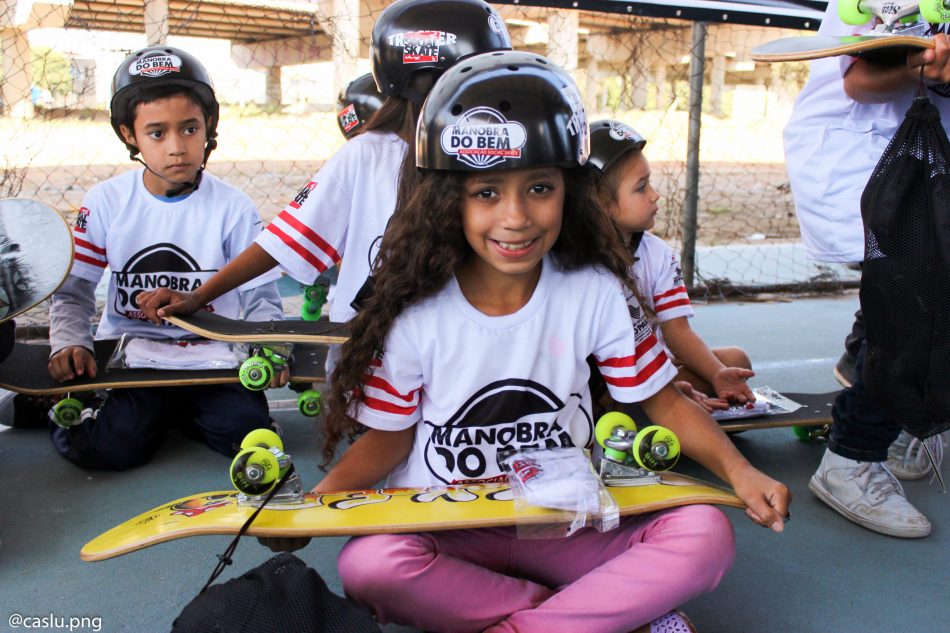A decade ago, 43-year-old skateboarder Sandro Soares, known to most as Testinha, together with his wife Leila, launched Social Skate, a charity-funded non-governmental organization that offers free skate lessons to young people in the Calmon Viana neighborhood in the city of Poa, on the outskirts of Sau Paulo. The Social Skate program was interrupted for months due to the pandemic, but recently Testinha was able to resume training sessions as restrictions eased.
Most children who participate in the program come from underprivileged backgrounds, which is the motivating factor for the couple to provide lessons at no cost. The couple also alleviates hunger by giving out snacks and drinks to energize the kids before their skateboarding workout.
“There are hardly any free leisure activities for children and young people in the area,” explains Testinha, which means that the majority of local families can afford to pay for extracurricular activities for their children.
Like many underprivileged cities, Poa struggles to combat crime, violence, and unemployment. Testinha, who used to work as a social worker at juvenile detention centers, would see first-hand the paths that young detainees head toward when they are exposed to negative influences and are not shown alternatives.
His experience as a social worker is what motivated him to start Social Skate, which he believes is a better way of preventing kids from “going off the rails in the first place,” effectively putting an end to crime and violence instead of “[starting] when they’re already in prison.”
Fall down and get up again
Skateboarding is the perfect activity to teach children discipline, resilience, self-confidence, and social skills. “When you skate, you often try a trick and don’t get it right at first—but you don’t give up, you try a second time and a third time,” says Rafael Vinicius da Silva, a teen who has been skating at Social Skate over the past few years. “If you want to skate, you’re forced to leave the house. You often meet new people,” he adds, explaining how the program helped him overcome his shyness.
The classes always end with every participant gathering around to talk about what went well in the class and what didn’t. The conversations will often lead to bigger topics, like what it means to respect another person, and why it’s important to not only try your best when it comes to skating but also at school.
To help motivate the kids, clothes, skateboards, and other items are donated to Social Skate, and when participants “get good grades at school, sometimes [they] get to go on a field trip or pick our shoes or an item of clothing,” says Luana Alcantara da Costa, another young skater.
The NGO also partners with well-known skaters, most recently Rayssa Leal, a 13-year-old Brazilian skateboard star who won a silver medal in women’s street skateboarding at the 2020 Tokyo Olympics, and the recipient of the International Visa Award for athletes who best represent Olympic values.
Since it began, Social Skate has given free skateboarding lessons to over 1,000 children. Testinha recognizes that NGOs play a big role in taking care of the well-being of children and young people, as the public sector often neglects them. He and his wife have a mission to continue using skateboarding as a tool to uplift and empower underprivileged youth and the neighborhood as a whole.











